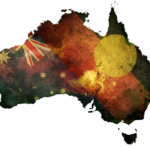We want to believe

Throughout history, religious fundamentalists have initiated wars and persecution. We are seeing this now in the eastern Mediterranean – on both sides.
We are born with a brain which is capable of acquiring a tremendous amount of information. However, our five senses are feeding it with data at such a rate that it is incapable of absorbing all of it at once; it therefore learns very quickly to ignore that data which appears irrelevant at the time, while at the same time absorbing data which appears to contribute to what we already know.
However, our analytical faculties are not always brought to bear on new information and so some of the ‘facts’ we have accepted may have been either misinterpreted or are wrong. Once we have accepted a piece of data as a fact it is not easy to dislodge with an opposing piece of data; hence we tend to accept ideas which correspond with our thinking and ignore others.
Belief is a genuinely curious and perplexing phenomenon , showing many different faces to the world. Sometimes belief attribution appears to be a dark, risky, and imponderable business – especially when exotic, and more particularly religious or superstitious, beliefs are in the limelight .
These are not the only troublesome cases; we also court argument and scepticism when we attribute beliefs to nonhuman animals, or to infants, or to computers or robots. Or when the beliefs we feel constrained to attribute to an apparently healthy adult member of our own society are contradictory, or even just wildly false.
In all of these cases, belief appears beset with subjectivity, infected with cultural relativism, prone to “indeterminacy of radical translation”. On other occasions, normal occasions, when familiar beliefs are the topic, belief attribution looks as easy as speaking prose and as objective and reliable as counting beans in a dish.
Particularly when these straightforward cases are before us, it is quite plausible to suppose that in principle (if not yet in practice) it would be possible to confirm these simple, objective belief attributions by finding something inside the believers head – by finding the beliefs themselves, in effect.
If we knew more about physiological psychology, we could in principle determine the facts about your brain state and thereby determine whether or not you believe there is milk in the fridge, even if you were determined to be silent or disingenuous on the topic .
In principle , on this view, physiological psychology could trump the results – or nonresults – of any “black box” method in the social sciences that divines beliefs (and other mental features) by behavioural, cultural , social, historical , external criteria .
These differing reflections congeal into two opposing views on the nature of belief attribution , and hence on the nature of belief. The latter, a variety of realism, likens the question of whether a person has a particular belief to the question of whether a person is infected with a particular virus – a perfectly objective internal matter of fact about which an observer can often make educated guesses of great reliability .
The former likens the question of whether a person has a particular belief to the question of whether a person is immoral , or has style or talent, or would make a good wife. Faced with such questions, we preface our answers with “well, it all depends on what you’re interested in”, or make some similar acknowledgement of the relativity of the issue. “It’s a matter of interpretation”, we say.
These two opposing views, so baldly stated, do not fairly represent any serious theorists’ positions, but they do express views that are typically seen as mutually exclusive and exhaustive; the theorist must be friendly with one and only one of these themes.
We rely to a great extent on knowledge and scientists, the holders of that knowledge. For four hundred years, since Galileo, science has always proceeded as a free and open enquiry into the workings of Nature, ignoring national boundaries and holding themselves above politics and wars. They have rebelled against secrecy, patent laws and have worked for the benefit of mankind.

Alan Stevenson spent four years in the Royal Australian Navy; four years at a seminary in Brisbane and the rest of his life in computers as an operator, programmer and systems analyst. His interests include popular science, travel, philosophy and writing for Open Forum.













